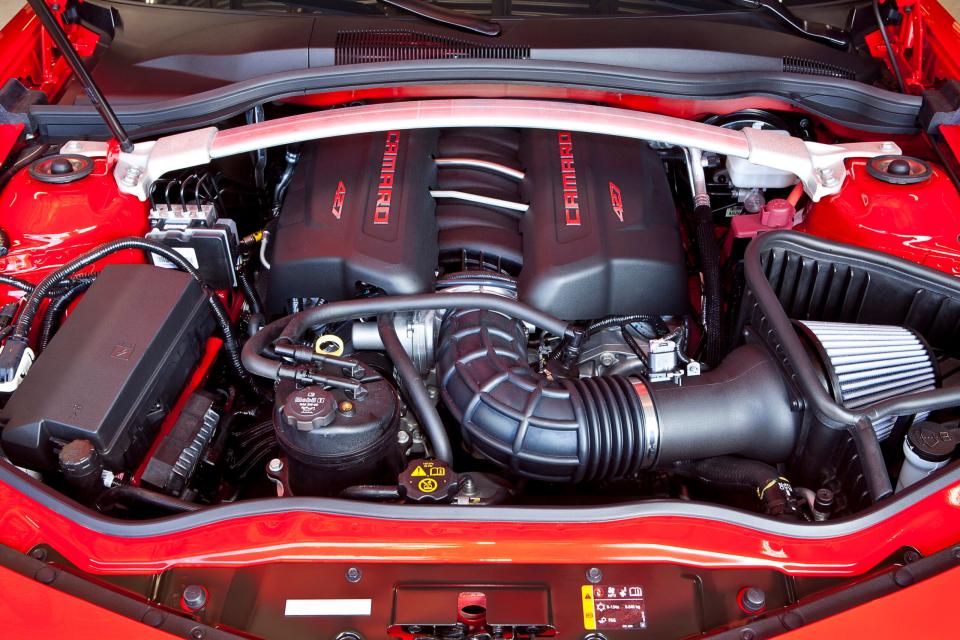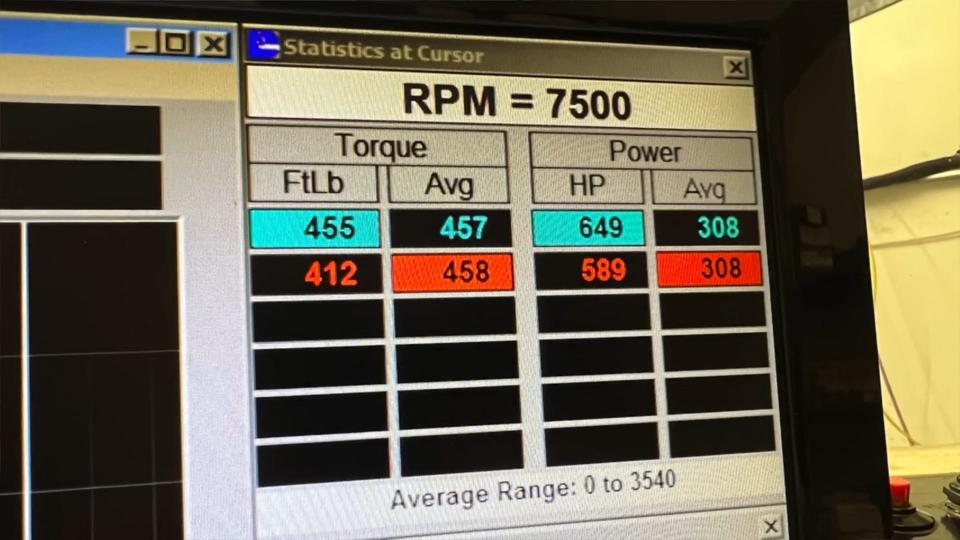Want a Cheap Horsepower Boost? Try Dangerously Low Oil Levels

It's Sunday, Sunday, Sunday, and do I have an offer for you! No, it's not another wrecked muscle car, but it's performance-related! Want more power but are short on money, parts, and time? Then look no further than the oil pan.
And then drain it. At your own risk.
You just cringed, didn't you? Well, I didn't say drain it all the way. If you have a hearty interest in motorsports and drag racing, you might know what we're talking about here. It's long been said that an engine with a lot less oil than normal will make more horsepower, because there's less fluid to push around and sloshing about in the crankcase, so more power sent to the wheels. Now, a new test has not only proven that's true, but quantified the power gains from oil starvation in a GM LS V8 engine—as much as a 10% increase in horsepower while running with dangerously low levels.
The test was put on by Lake Speed Jr., aka The Motor Oil Geek, an automotive engineer whose specialty is engine lubrication. He and Ben Strader, founder of the online technical school EFI University, ran the V8 on a dyno with different amounts of oil. It normally takes 11 quarts of 15W-40, and the test showed power delivery on five, seven, and nine quarts. See for yourself below.
https://youtu.be/bk7r0TL0Or4?si=rPxMF0WDvUfadaYZ
The oil used was GP-1 High-Performance, a synthetic blend by Driven Racing Oil. Speed Jr. is the former R&D boss at Driven, something he discloses in the video notes.
At five quarts, the engine produced up to 649 hp. Impressive! But at around 5,100 rpm, the oil pressure dropped to a low of 36.1 psi, which is nearly half of where it started. Low oil pressure will damage all kinds of engine components. Stay too low for too long, and the engine will eventually seize.
With two quarts added, the engine numbers were more stable. At 5,100 rpm, the oil pressure was at 68 psi. Instead of dropping, the pressure had actually been increasing before that point. At peak performance with seven quarts of oil, the engine output was 630 hp. Strader added that pressure started to drop at 7,000 rpm as the oil ran out in the wet sump, which also caused power to dip.

The final run at nine quarts returned a downward spiral of results. Following the pattern of the previous tests, the fully-lubed engine lost no pressure at all throughout the dyno run. That's definitely a good thing for engine longevity. In terms of the fun factor, though, it's poop. Maximum returns were 589 hp and 412 pound-feet. Compare that to the 5-quart run's 649 hp and 455 lb-ft, and what are we even arguing anymore?
The duo admitted that the range of highs and lows could be specific to that LS engine, which was modified. They also planned to do similar tests on an engine with a dry sump. Nevertheless, the key takeaway is that although YMMV, there will be a power boost when the engine uses less oil. The trick is to find the happy place where the lube doesn't run out before you enjoy the benefits. Or it could be a matter of circumstance. As Strader said, "If it's the last round, take some oil out of it!" Drain it to win it. But don't say we didn't warn you.

 Yahoo Autos
Yahoo Autos 